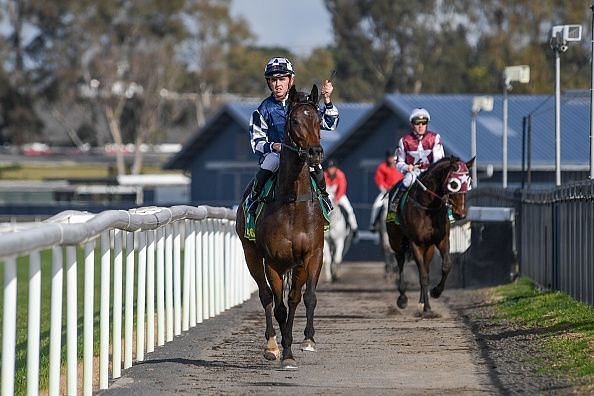
To bet or not to bet: How legalising gambling in India could help curb crime and increase tax revenue

As per the common knowledge floating around, betting is illegal in India. The truth, however, is that casino gambling, lotteries, and horse racing are a few areas that are selectively allowed for betting under certain regulations.
Now while these areas get a free pass on betting (conditions applied), according to FICCI, India still manages to own a betting market worth $60 billion, with the ever-popular game of cricket accounting for almost 80 per cent of it, all thanks to a massive underground betting market. And unsurprisingly, a large part of this market is mostly based on cricket matches.
Now, when India’s selective betting status is compared with other countries (Australia, UK, Phillippines, Ghana, South Africa to name a few) where betting is thoroughly allowed both through online mediums and betting parlous, it’s not very hard to understand how legal betting could save India from adding to its taints of fraud cases worth billions.
Law Commission's report on regulated betting

It’s harder than it seems to control the illegal betting practices operating in India in full bloom, but if betting is given a legal face, it would be easier to let it continue in a controlled manner. This seems to be the only viable option, and if the amount laundered in illegal betting is considered, it’s almost the need of the hour!The Law Commission had submitted a detailed report last Thursday to the government, highlighting how when equipped with strict regulations and techniques, betting and gambling could ensure detection of fraud and money-laundering cases.
The regulations (if legal betting is given a green signal by the government):
* In its report, the law commission specifies gambling enthusiasts to be minimum 18 years of age or above.
* It further recommends that all payments or bets placed should be linked to the participant’s Aadhar card/Pan card.
* The report has also shown interest in the conception of an FDI policy to allow foreign direct investments in casino/online gaming industry. This said, it has also highlighted the need for a stringent law to prevent money-laundering cases. Any match-fixing cases and any fraudulent practices are to be strictly considered as criminal offences and must be treated with severe punishments.
* It further states the requirement of a cap on a number of transactions a participant can indulge in a specific period of time.
* All transactions are to remain cashless and any income derived should be made taxable.
Vulnerable will be protected from exploitation
If history is anything to go by, we know that whenever a new reform is introduced, it’s never without some loopholes, be them internal or from the external environment. Like in case of betting being made legal, it would be an easy attraction for the vulnerable to risk their limited resources in hands of fate. However, the Law Commission’s report addresses this concern by stating that gambling should be divided into two categories, “Proper,” and “Small”.
Proper gambling, where one can play higher stakes, would be a viable option only for people in a higher income group. Whereas small gambling could be a choice for people in smaller income groups, as it would restrict them from playing high stakes.
Opinions of the enthusiasts in the business

Sportskeeda got in touch with Mohit Agarwal, co-founder of adda52.com (India’s largest poker site), to know his views on legalising betting in India.
About the existing law, Agarwal says, “Existing law doesn’t allow individuals to gamble, bet in sports, or play offline skill games. Although individuals can indulge in gambling or play games of skills offline in licensed areas like casinos. The result is a black money driven gambling and betting industry.”
When asked about the probable effect of the proposed changes in the gambling law, “If LCI's recommendation is executed, this will enable individuals to indulge into betting in sports, and play skill games.
"This will also have to package well with regards to the tax structure, as well as proper implementation. If executed correctly, this will draw curtains on a prime source of black money, and bring in loads of tax revenue which can be used in social schemes and public welfare.”
Agarwal believes that illegal betting could be eliminated to a large extent, if the industry is properly legalised.
"It can be done if there is a calibrated approach is taken to the execution of the proposed changes, combined with other essentials like a non-prohibitive tax structure. If executed seamlessly, this can prove to be a very positive step for the economy."
Piyush Kumar, Founder, and CEO of Rooter, India's first social fan engagement platform that connects sports fans and engages them during Live sporting events, believes that legalising betting in India could also help curb a number of criminal activities.
"Legalisation and proper regulation for betting on sports would certainly minimise criminal acts and add an additional source of tax revenues for the government," he said.
"Having said that, it is too early to fathom how the legalization would be implemented and the response from the country. But we are looking forward to the next steps on this recommendation by The Law Commission,” Kumar further said.
An extended match of word-volleyball by Law Commission

In a recent report published in TOI, Law Commission Chairman Justice BS Chauhan says that his panel's report has been misunderstood and that the panel had instead approached the government with the call for a total ban in their report.
Jerky stuff, isn’t it? BS Chauhan adds, "Again, it has been recommended effective regulation remains the only viable option to control gambling if it is not possible to enforce a complete ban.”
The extracted sense out of this recent hullaballoo is that if the government feels the need to legalise betting, the Law Commission’s list of regulations will come in handy.